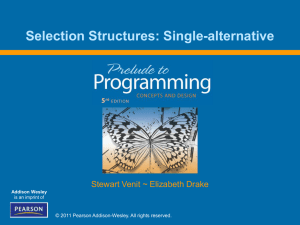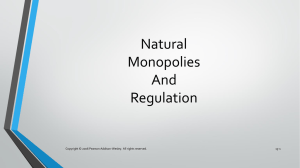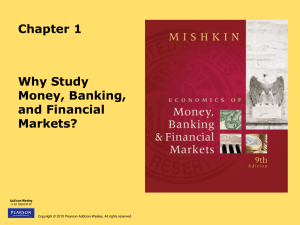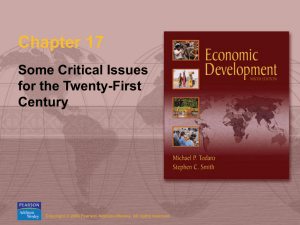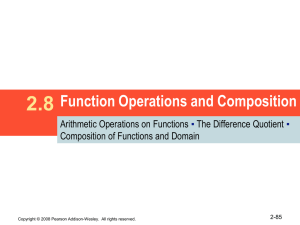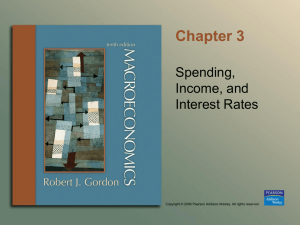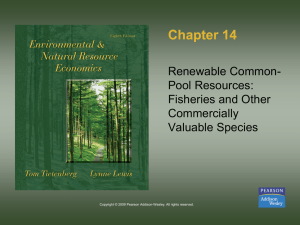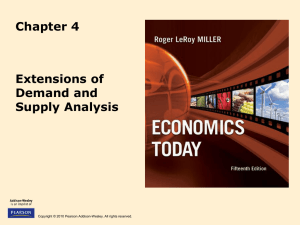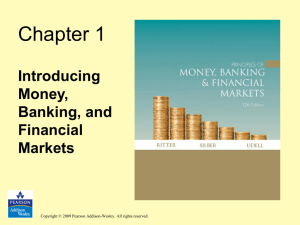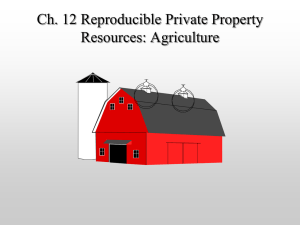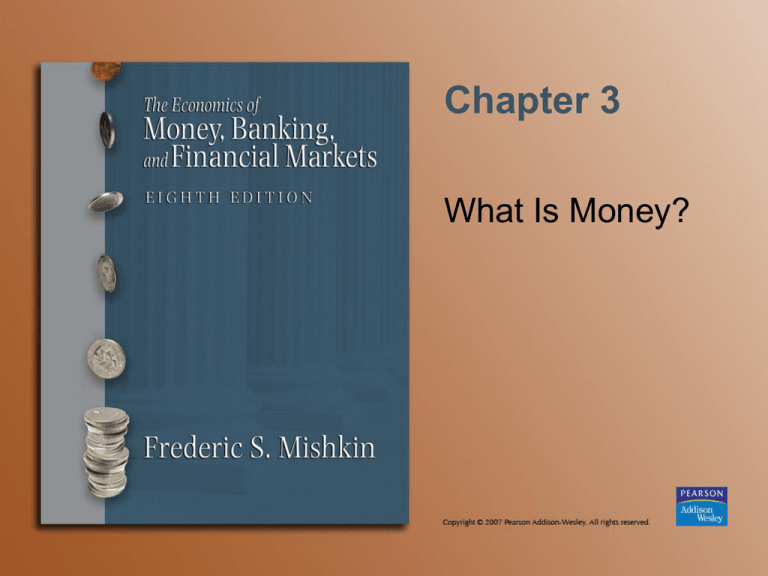
Chapter 3
What Is Money?
Meaning of Money
• Money (money supply)—anything that is
generally accepted in payment for goods
or services or in the repayment of debts;
a stock concept
• Wealth—the total collection of pieces of
property that serve to store value
• Income—flow of earnings per unit
of time
Copyright © 2007 Pearson Addison-Wesley. All rights reserved.
3-2
Functions of Money
• Medium of Exchange—promotes economic efficiency
by minimizing the time spent in exchanging goods
and services
Must be easily standardized
Must be widely accepted
Must be divisible
Must be easy to carry
Must not deteriorate quickly
• Unit of Account—used to measure value in
the economy
• Store of Value—used to save purchasing power; most
liquid of all assets but loses value during inflation
Copyright © 2007 Pearson Addison-Wesley. All rights reserved.
3-3
Evolution of the Payments System
• Commodity Money
• Fiat Money
• Checks
• Electronic Payment
• E-Money
Copyright © 2007 Pearson Addison-Wesley. All rights reserved.
3-4
Copyright © 2007 Pearson Addison-Wesley. All rights reserved.
3-5
How Reliable are the Money Data?
• Revisions are issued because:
Small depository institutions report infrequently
Adjustments must be made for seasonal variation
• We probably should not pay much attention to
short-run movements in the money supply
numbers, but should be concerned only with
longer-run movements
Copyright © 2007 Pearson Addison-Wesley. All rights reserved.
3-6
Copyright © 2007 Pearson Addison-Wesley. All rights reserved.
3-7
Copyright © 2007 Pearson Addison-Wesley. All rights reserved.
3-8


